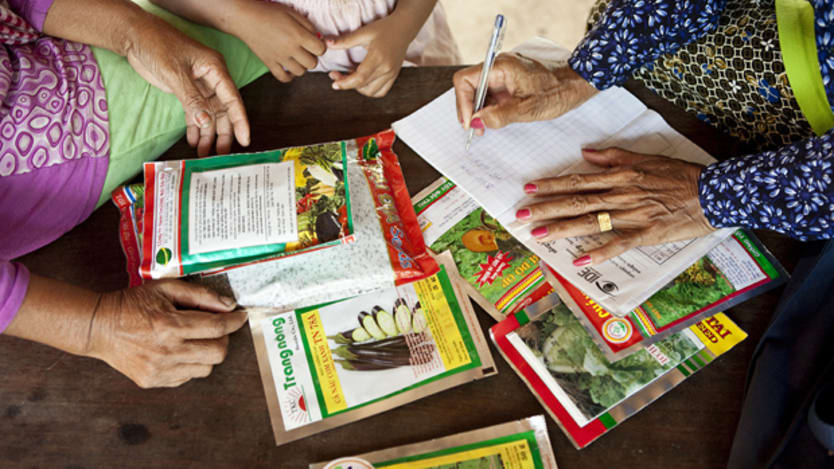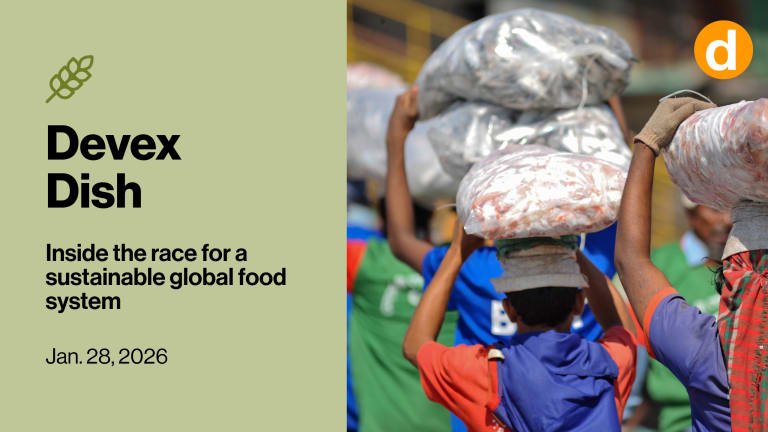
Nutrition and hunger are complicated issues. As development practitioners from all sectors are learning, feeding and nourishing the 870 million undernourished people in the world needs strong leadership, partnerships, and the supply chains and distribution channels to ensure access. Furthermore, this is not only a developing-world issue; one-sixth of Americans do not have enough food to eat.
Every city in the world needs to understand what populations are at risk of consistent hunger. No single organization or sector can solve this problem alone, but companies like DSM, Amway, Wal-Mart, Cargill, General Mills and Nestlé are providing great examples of leadership in the nutrition and food security space. But first, to understand how companies are working to solve these problems, we must fully understand what’s at stake.
The problem
It is no surprise that the weak and disadvantaged are most affected by chronic malnutrition, which can cause permanent and even life-threatening harm. Because poor nutrition can alter the chemistry and cognitive development in humans, food-insecure communities suffer from societal and economic challenges for generations. Malnutrition causes permanent changes to the foundations of a community, stressing health care systems, decreasing economic productivity and undermining success in school.
See more #FeedingDev articles:
• Food justice is about more than food security and nutrition• Nutritional intake patterns: Implications for food security?• From food aid to nutritious, locally produced food
One of the demographics most susceptible to long-term effects are children under the age of 2. The World Food Program calls this time a critical “window of opportunity” to receive the right mix and quantity of nutrients. Without this correct mix, children are at risk for long-term physical and cognitive challenges, including stunted growth, attention-deficit disorder, decreased IQ, reduced social skills, reduced language development and other long-term disorders. It is a great tragedy to think of a child under the age of 2 being susceptible to long-term physical and mental impediments because of poor nutrition during this short window. Thus, one of the primary targets for nutrition in food-insecure areas is children under the age of 5, with specific focus on those younger than 2.
Nevertheless, we cannot ignore other demographics, and one reason is the strong connection between nutrition and disease. Evidence suggests lack of proper nutrition as one of the leading causes of noncommunicable diseases. Six leading NCDs, which cause 70 percent of deaths in the world, can be mitigated through appropriate diet.
Experts contend that improving access to nutrition is one of the easiest and lowest-cost ways to improve global health. So what role can companies take on to ensure greater success?
3 complementary approaches to the same problem
The first approach is to help farmers. There are approximately 500 million small-holder farmers in the world. These farmers are the source for food locally in most developing countries. Increasing the supply of a consistent blend of produce requires consistent production from local farmers.
Some companies are taking on food security by improving income for farmers through securing access to land, better financial services, technology for access to markets and technology for improving yields. This produces economic benefit for the farmers, along with a consistent and local supply for the community.
The Wal-Mart Foundation recently contributed $1 million to expand the Ejo Heza, or Brighter Future, project in Rwanda in partnership with the U.S. Agency for International Development. This funding will support Global Communities’ training of 50,000 farmers in biointensive agricultural techniques, which focus on the production of corn, beans, dairy and nutrient-rich vegetables. The Ejo Heza program is part of USAID’s Feed the Future program to improve food security in insecure areas.
Nestlé, meanwhile, has adopted a shared-value model for helping small-holder farmers. Since the company depends on more than 5 million farmers for its raw material, there is inherent value for Nestlé as well as the farmer. The company recognizes that there needs to be a base of strong rural agriculture as urban centers continue to grow and has developed the Nestlé Cocoa plan, which commits to train farmers in improved techniques for greater yield, provide high-yielding plants, improve social conditions to stop child labor and increase access to education, and develop a sustainable supply chain through tracking sourcing of cocoa.
Another important approach is ensuring that supply chains exist to move food to populations that need it most. Partners in Food Solutions, a partnership between DSM, Cargill and General Mills, seeks to “improve the food value chain and create a virtuous cycle.” Their expertise relies on multiple partners, including TechnoServe, to grow and move food safely from small-holder farmers to local markets.
The third approach is access to nutrition. Many companies produce supplements that can supply people, particularly children under 5, with the right nutritional components to foster physical and cognitive growth. In 2007, Royal DSM, a world leader in nutrition, partnered with the World Food Program to form the Improving Nutrition, Improving Lives partnership. In 2013, they renewed this partnership for an additional three years with an ambitious goal: to double the current reach from 15 million people per year to between 25 million and 30 million people per year. Through this partnership, DSM supplies low-cost “MixMe” nutritional packets, which supply the necessary mix of vital nutrients to sprinkle into prepared meals. Amway has developed a similar product called Nutrilite Little Bits, which contains 15 critical vitamins and minerals. The company has piloted the project in Mexico and Zambia with significant success. In April of this year, Amway announced that it will be increasing its reach to 17 countries by 2016.
These three major approaches provide a glance at the complexity of the food security challenge, but also show how companies and partners can tackle pieces of the challenge in an effective way. There is no single actor who can tackle the whole problem. Thus, we advocate that through cross-sectoral partnership, we can begin to tackle this deeply rooted issue.
Want to learn more? Check out Feeding Development's campaign site and tweet us using #FeedingDev.
Feeding Development is an online conversation hosted by Devex in partnership with ACDI/VOCA, Chemonics, Fintrac, GAIN, Nestlé and Tetra Tech to reimagine solutions for a food-secure future from seed and soil to a healthy meal.








